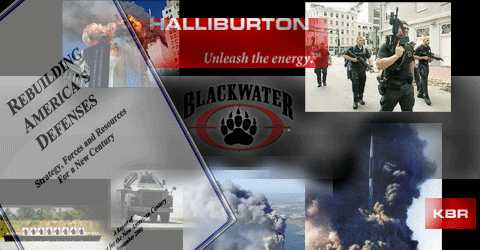There is considerable international discussion that the confrontation between Iran and
the international community over its nuclear programme may change in character into
a major war between Iran and either US or Israel or both in conjunction with allies
such as the United Kingdom. This study uses open source analysis to outline what the military option might involve
if it were picked up off the table and put into action. The study demonstrates that an
attack can be massive and launched with surprise rather than merely a contingency
plan needing months if not years of preparation.
The study considers the potential for US and allied war on Iran and the attitude of key
states. The study concludes that the US has made military preparations to
destroy Iran’s WMD, nuclear energy, regime, armed forces, state apparatus and
economic infrastructure within days if not hours of President George W. Bush
giving the order. The US is not publicising the scale of these preparations to
deter Iran, tending to make confrontation more likely. The US retains the option
of avoiding war, but using its forces as part of an overall strategy of shaping
Iran’s actions.
• Any attack is likely to be on a massive multi-front scale but avoiding a ground
invasion. Attacks focused on WMD facilities would leave Iran too many
retaliatory options, leave President Bush open to the charge of using too little
force and leave the regime intact.
• US bombers and long range missiles are ready today to destroy 10,000 targets
in Iran in a few hours.
• US ground, air and marine forces already in the Gulf, Iraq, and Afghanistan
can devastate Iranian forces, the regime and the state at short notice.
• Some form of low level US and possibly UK military action as well as armed
popular resistance appear underway inside the Iranian provinces or ethnic
areas of the Azeri, Balujistan, Kurdistan and Khuzestan. Iran was unable to
prevent sabotage of its offshore-to-shore crude oil pipelines in 2005.
• Nuclear weapons are ready, but most unlikely, to be used by the US, the UK
and Israel. The human, political and environmental effects would be
devastating, while their military value is limited.
• Israel is determined to prevent Iran acquiring nuclear weapons yet has the
conventional military capability only to wound Iran’s WMD programmes.
• The attitude of the UK is uncertain, with the Brown government and public
opinion opposed psychologically to more war, yet, were Brown to support an
attack he would probably carry a vote in Parliament. The UK is adamant that
Iran must not acquire the bomb.
• Short and long term human, political and economic consequences of any war
require innovative approaches to prevent the crisis becoming war.
Read this PDF (80 pages)
Or an excellent excerpt here
September 3, 2007
Categories: 9/11, Afganistan, Big media journalism, Big oil, Black ops, Bush, Cheney, CIA, Corporate Crime, Corporate greed, Corruption, Ethnic Cleansing, Genocide, Lies lies and more lies, Looting, Military-Industrial Complex, Neo Cons, New world order, Regular Army, Repression, Secrecy, Sociopathy, Terrorism, US World domination, War crimes, Zionism . . Author: Travellerev . Comments: Leave a comment



 A Texas oil company whose CEO is a longtime confidant of President Bush with access to the most closely held US intelligence has entered into an agreement to explore for oil in Iraq’s semi-autonomous Kurdistan region.
A Texas oil company whose CEO is a longtime confidant of President Bush with access to the most closely held US intelligence has entered into an agreement to explore for oil in Iraq’s semi-autonomous Kurdistan region.
